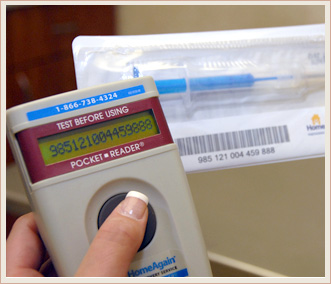Pet Wellness Services
Examinations 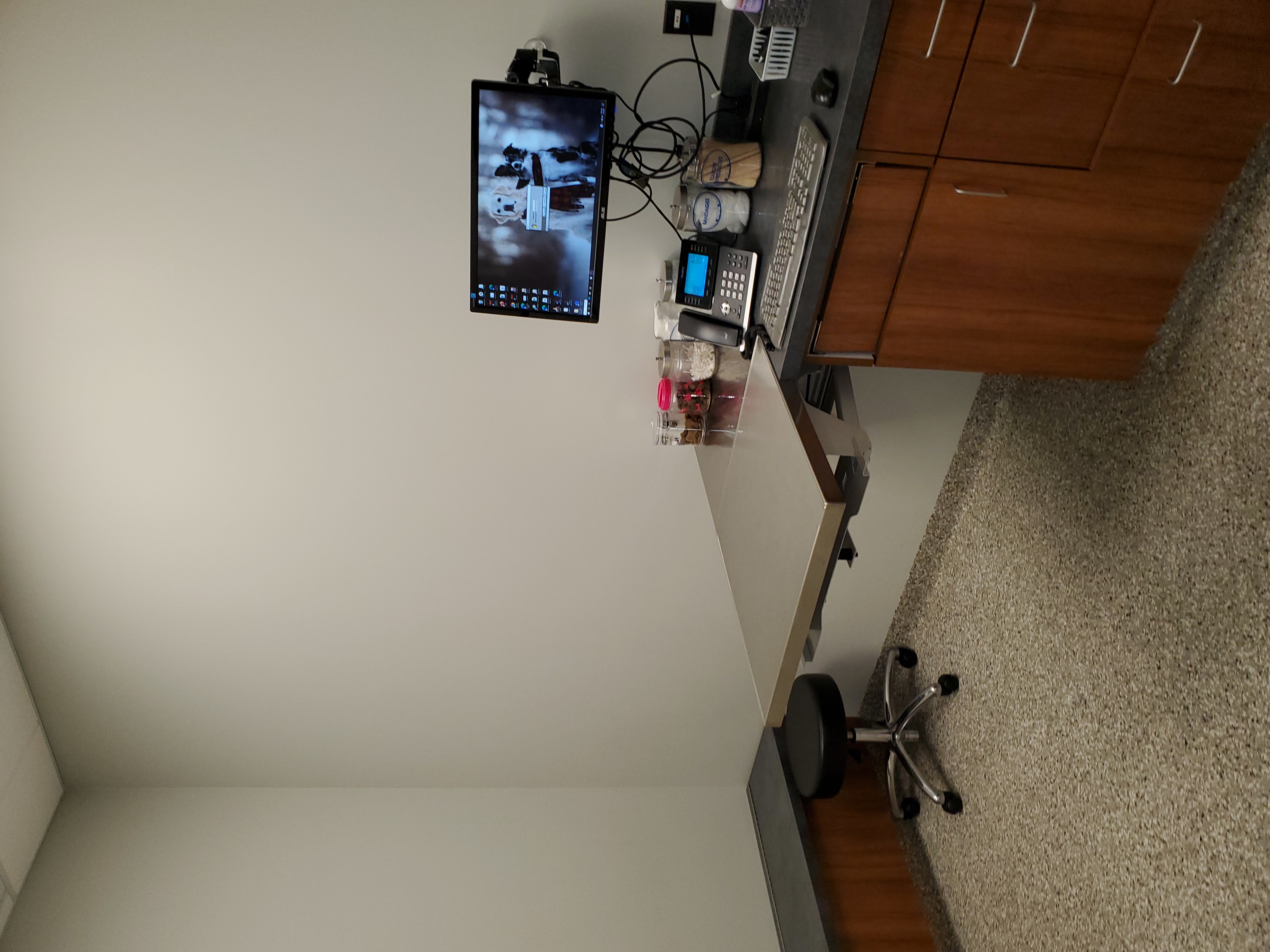
When it comes to your pet's health care, prevention is the key. Our veterinarians recommend your pet receive a physical exam at least once a year, though more frequent exams are encouraged. Regular physical exams are just as important for your pet as they are for you. Exams give us a complete picture of your pet's health and are useful in spotting diseases and other health problems in the early stages—before they become more difficult, and more expensive, to treat.
Our veterinarians perform a "nose-to-tail" examination of your pet. We listen to your pet's heart and lungs, evaluate his or her vision, check for unusual lumps and swelling and look at your pet's teeth and oral cavity. We also check your pet's joints for swelling or stiffness and may perform a series of routine blood tests in order to check for parasites. During the exam, we also discuss with you home health care options for your pet, and we are more than happy to answer any questions you may have.
Our MidMark Lift Table is in our larger examination room for pets that have mobility issues. For those animals that need assistance outside the exam room, we use our Versa Lift Mobility Stretcher that uses electric hydraulics for lifting and transporting.
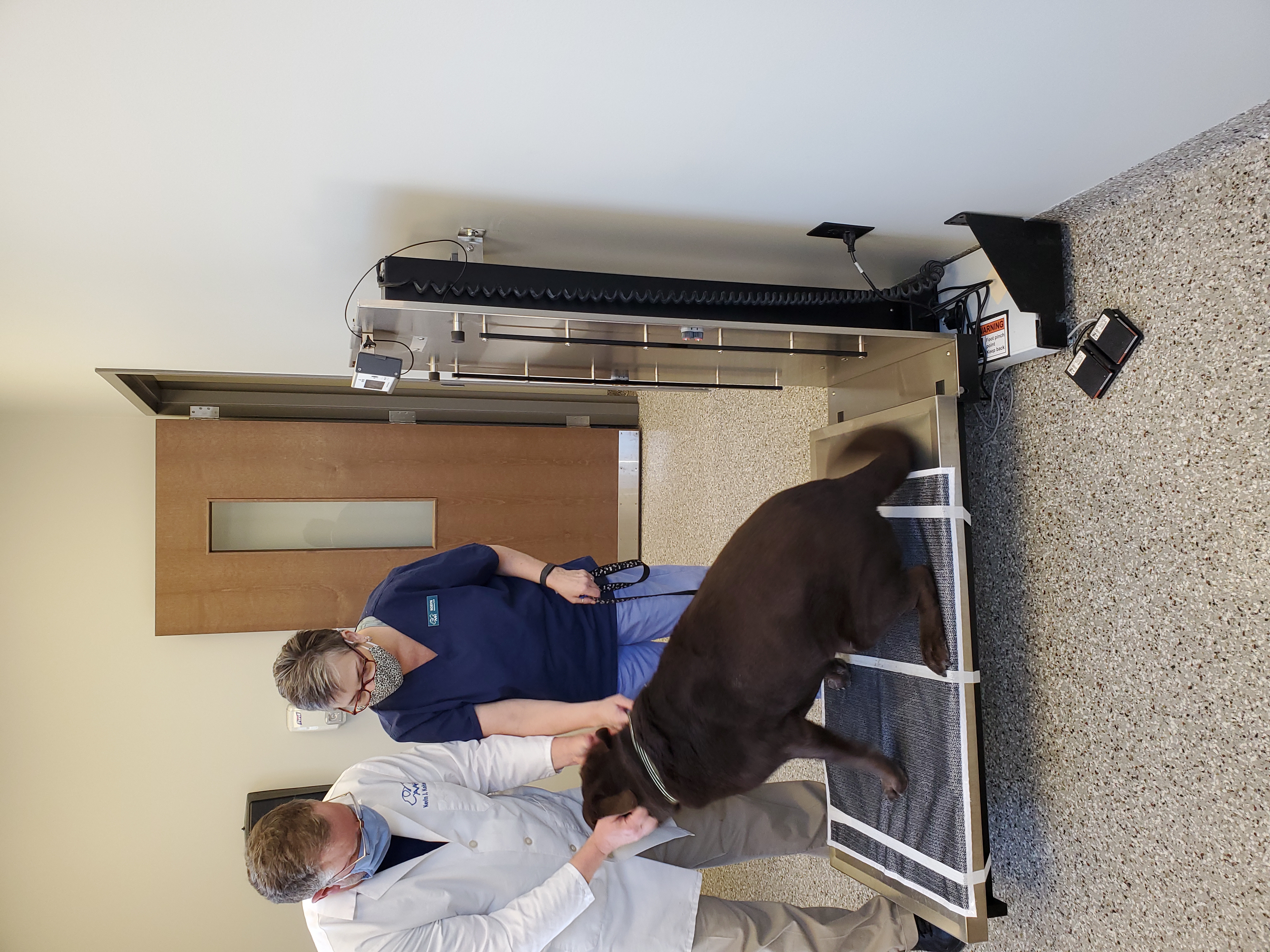
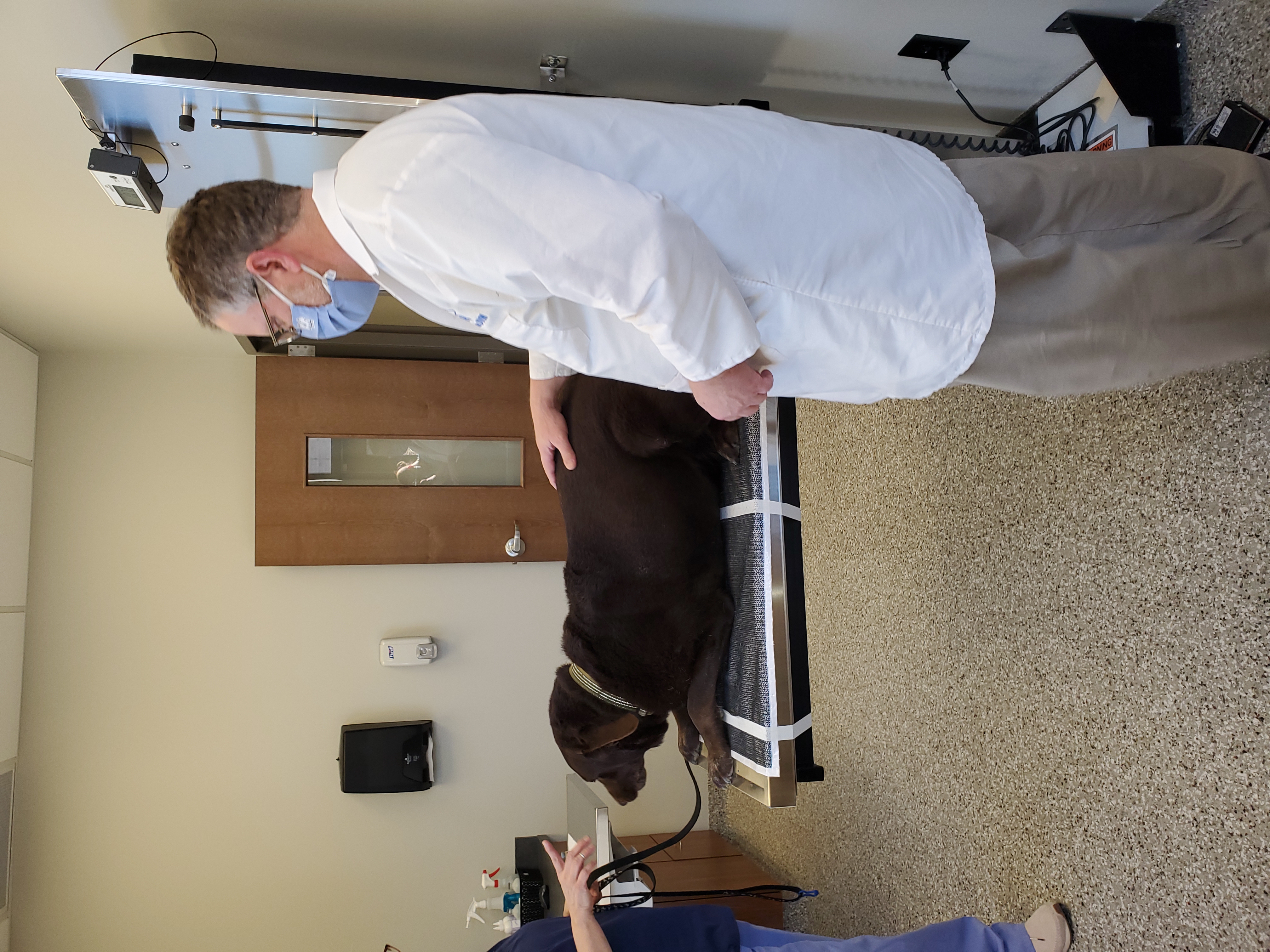
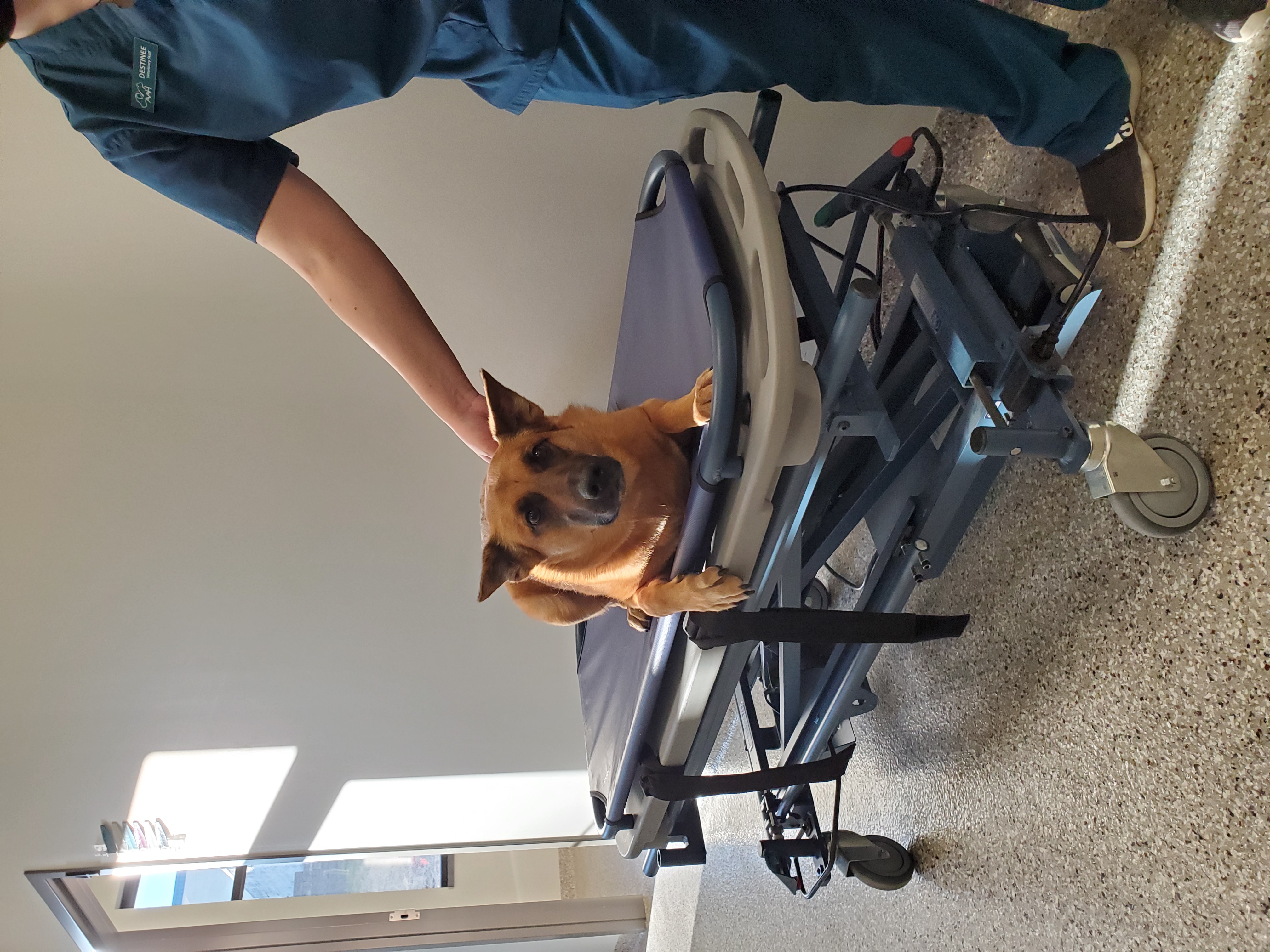
We now offer feline only treatment area, examination rooms and kennels.
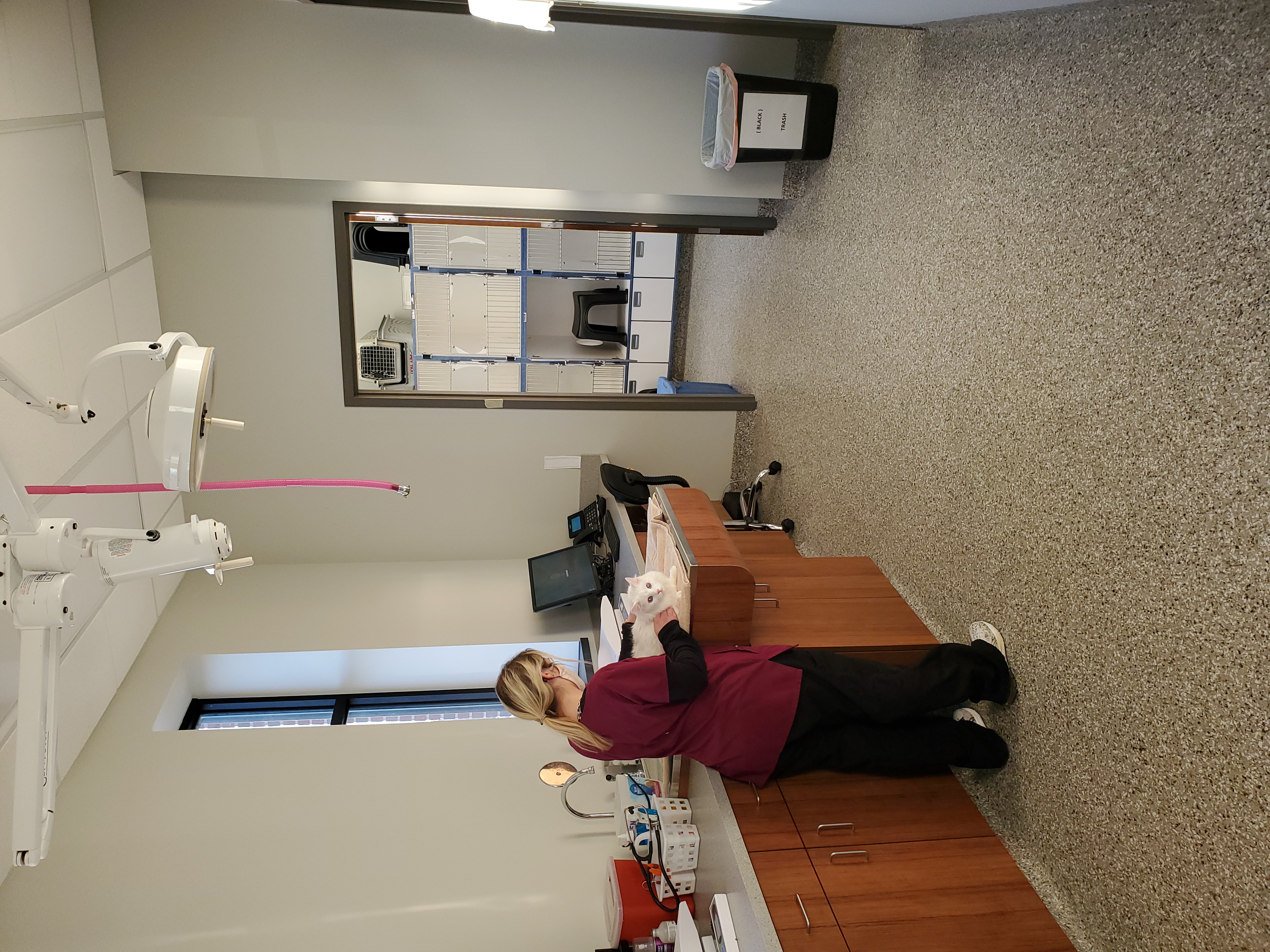
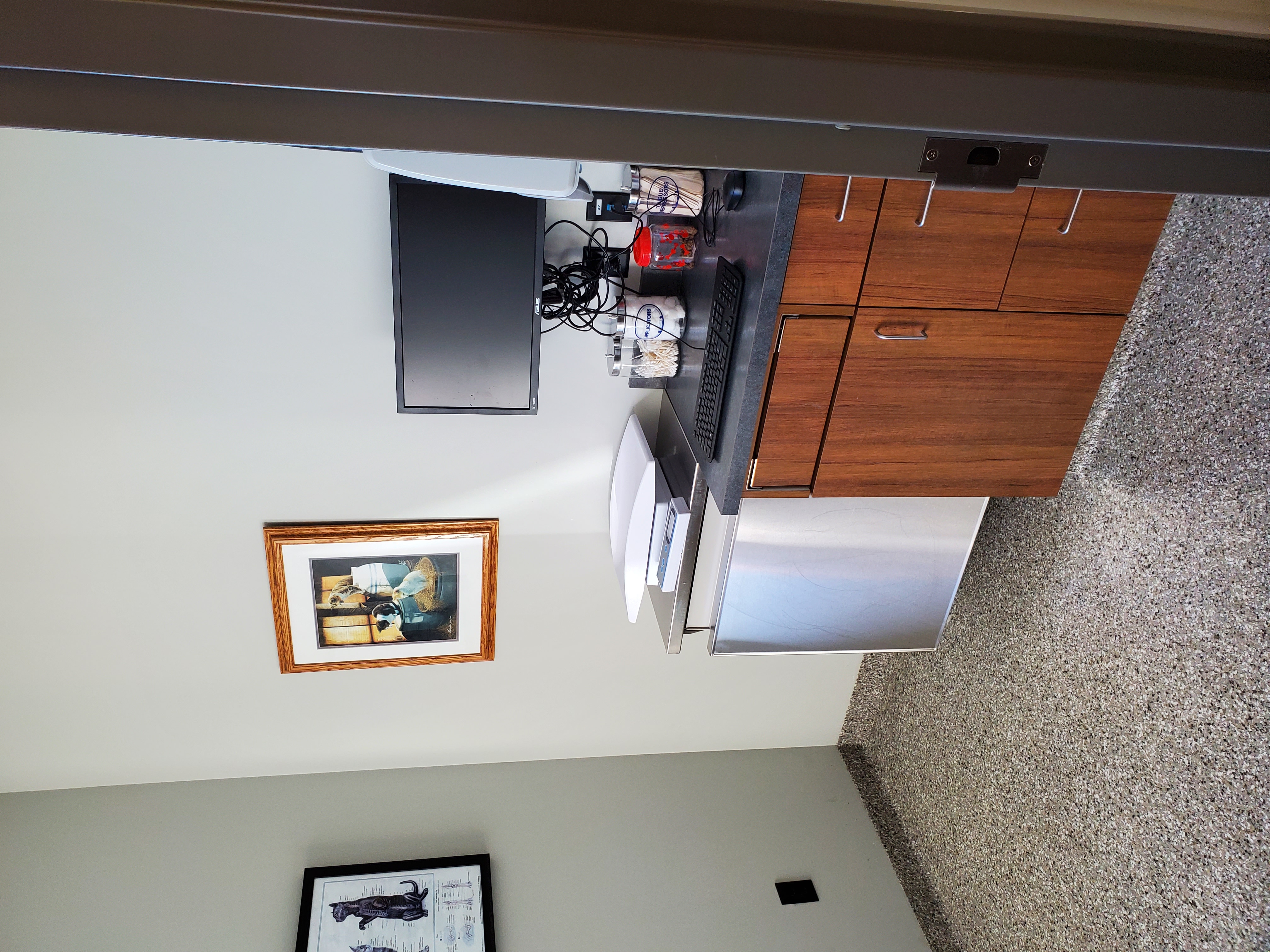
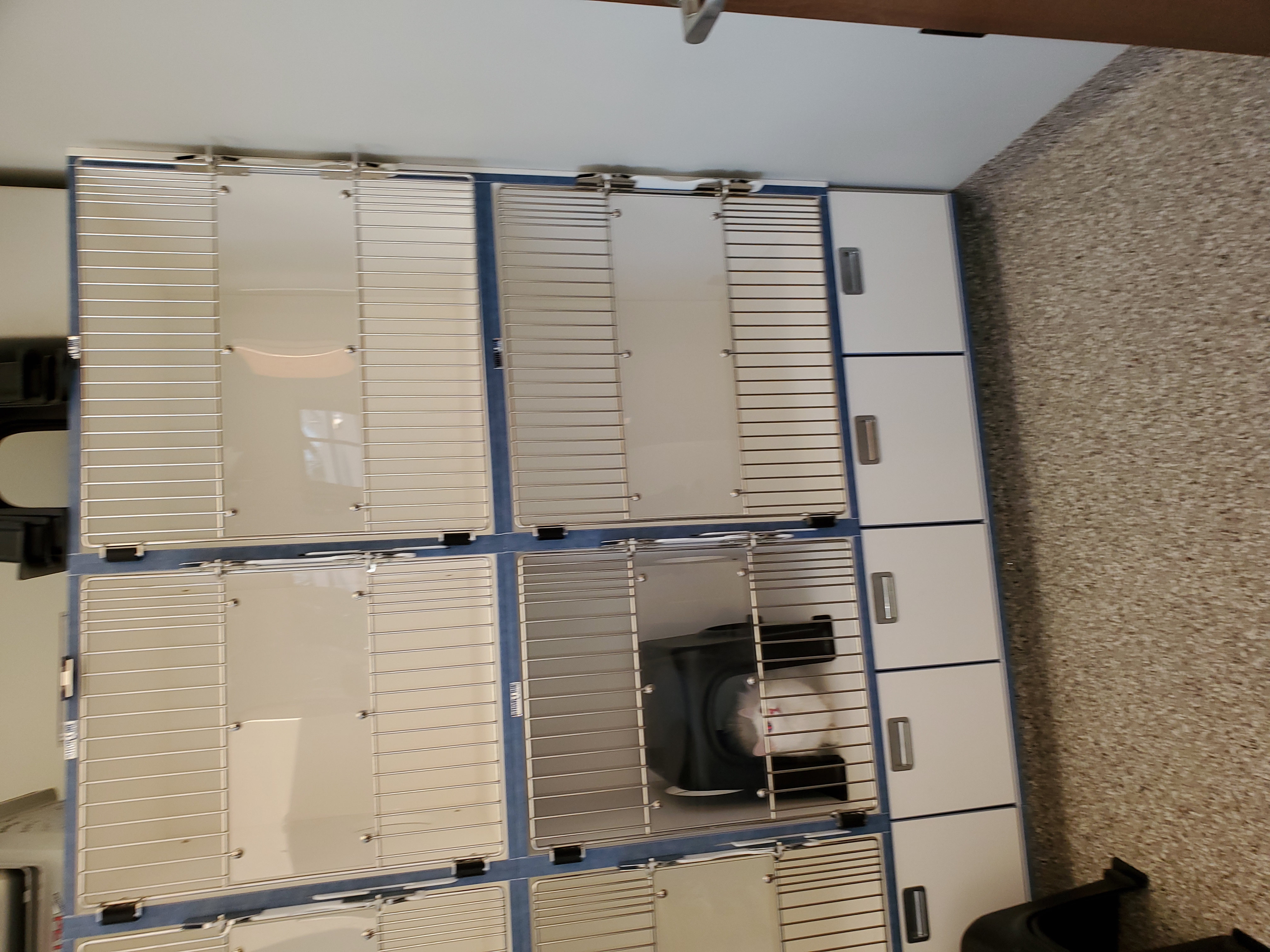
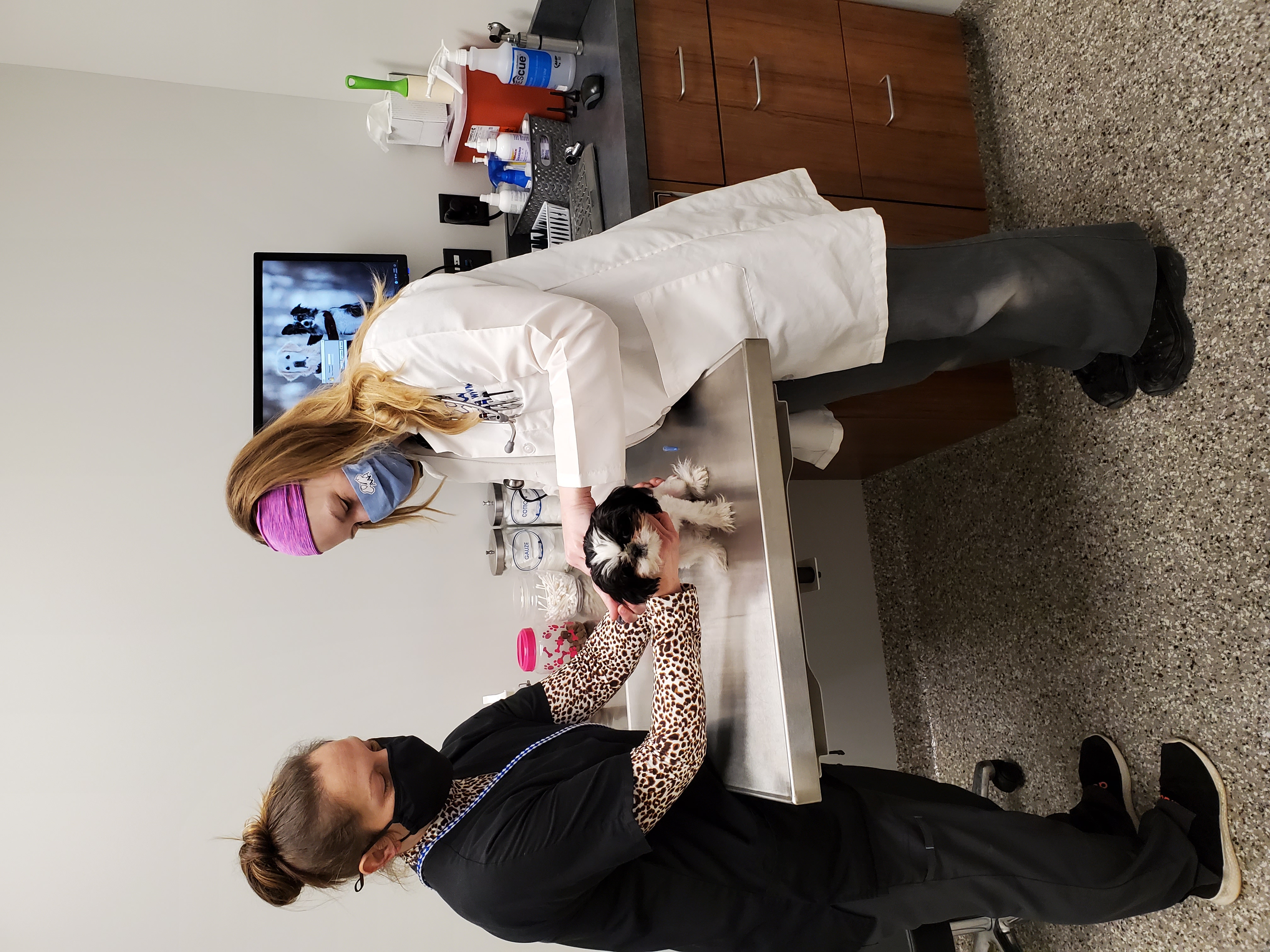
Vaccinations
Recent advances in veterinary immunology have made it easy to protect your pet from most major infectious diseases. Many immunizations and preventive treatments are available today that did not exist a decade ago. While vaccines are important, we realize that not every pet requires the same vaccinations. Many factors can influence what vaccinations your pet receives, including:
• How often your pet comes in contact with other pets, wildlife or livestock
• How often your pet travels with you outside of the St. Louis area
• The amount of time your pet spends at dog parks
• How often you pet goes on hikes or swims in creeks or lakes
Using guidelines provided by the American Animal Hospital Association, the American Association of Feline Practitioners and the American Veterinary Medical Association, the veterinarians at Arnold Animal Hospital will work with you to develop a vaccine schedule that is based on the individual needs and unique lifestyle of your pet.
Does your pet have a microchip? If your pet is lost, sometimes a collar and ID tag are not enough. Microchipping your pet is a simple, painless way that can help your pet return home should he or she go missing. A microchip is a small electronic device, about the size and shape of a grain of rice. It is implanted beneath your pet's skin, between the shoulder blades, and stays there for your pet's entire life. This procedure is as easy and painless as a vaccination.
Each microchip has a unique number. This number, along with vital information about your pet (including your address, phone number and contact information), is stored in a national pet registry. Most veterinary hospitals and animal shelters have electronic scanners for detecting and reading these implanted microchips. If your lost pet is found and the microchip is scanned, the registry is called and you can be contacted. Arnold Animal Hospital uses both the Home Again and AVID microchip systems.
